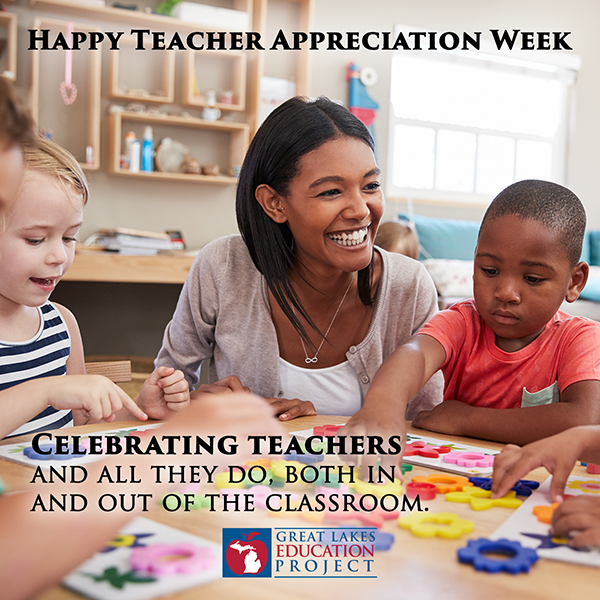

This week we’re observing National Teacher Appreciation Week and we’re more grateful than ever for the incredible work Michigan’s talented and dedicated public charter school teachers are doing to keep their students engaged and learning in the midst of a global health crisis.
Parents have always known our kids’ teachers matter. We’ve known they are important, that they are talented, and that they are committed to their students.
We always knew it, and yet somehow, the last month-and-a-half since school buildings were closed across Michigan, we’ve come to realize we never actually knew the half of it.
Public charter school teachers are pioneering new and effective distance learning techniques, they’re tailoring lesson plans around current events, and they’re keeping kids engaged and learning through some of the toughest and most isolating days they’ve ever encountered.
Instead of making decisions based on what’s best for the public school bureaucracy, we’re seeing teachers unleashed to give students the best opportunities to succeed in what are undoubtedly this generation’s toughest conditions.
Their students are better off for innovative teachers’ passion and care.
Parents? We appreciate them now more than ever.
Reformers? We’re fighting every day to make sure that when things “return to normal” the innovations they’ve pioneered make an even broader difference across the state.
Top on the list of student-centered reforms? Mastery-based education.




A pandemic in 2020 and a historically frigid 2019 have taught us the old model no longer works. It’s not good enough for our kids. They deserve better than a system that’s built around arbitrary calendars and unscientific seat time requirements. They deserve a system that’s built around them.
Now’s the time — this spring and summer — to explore, to develop, and to deploy a new way of doing things in Michigan schools. It’s time for a switch to mastery-based learning.
Mastery education is a new concept for a lot of us. It’s pretty straightforward, though. In a mastery-based education model, students learn, they grow, they develop skills and not until they’ve demonstrated a sufficient comprehension of one level of learning in a subject do they move to the next.
Making the switch now would help districts identify education gaps created during the COVID-19 crisis and address them to ensure students learn the material, content, or skills needed before moving to the next subject.
From there, we set Michigan’s kids loose in the classroom and empower their teachers to do what they do best.

Have you followed us yet on Facebook and Twitter?
GLEP is engaged every day in Lansing, in our schools, and across social media. These pages are one-stop-shops for the latest news, policy updates, and calls to action.
We hope you’ll consider liking us on Facebook and following us on Twitter today. It’s a great way to stay connected.